Welcome to our lab.
Our team is composed of experts from diverse academic backgrounds including Industrial Engineering, Computer Science, and Political Science and International Relations. We specialize in mathematical programming, network analysis, machine learning, and computational social science. We're dedicated to conducting high-level research, pushing boundaries in graph theory, computational social sciences, and AI applications. Beyond our research, each team member has unique interests and skills, adding depth to our collaborative environment. We prioritize innovation and rigorous analysis in all our projects.
Join us in our pursuit of cutting-edge knowledge and solutions.
Harun Pirim
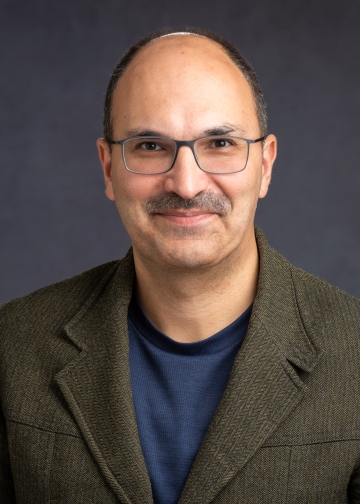
Harun Pirim received his Ph.D. in Industrial and Systems Engineering from Mississippi State University. His research interests include machine learning, network science, and mathematical programming applications in biological, social, and decision sciences. His recent work focuses on using machine learning and deep learning to predict the functions of hypothetical proteins, analyzing social media networks to identify individuals with specific traits, and conducting multilayer network analysis of power grids. He has published several papers in reputed journals and conference proceedings, authored multiple book chapters, and edited two books on data analytics. He also founded the CELL (Connect, Elicit, Learn Lab) at NDSU. Beyond his academic pursuits, he has a strong interest in science, philosophy, and metaphysics.
Muhammad Kazim
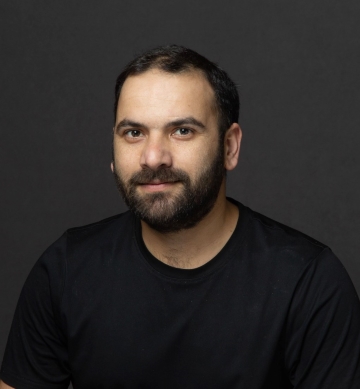
He holds a Bachelor's degree in Computer Science from the University of Malakand, Pakistan, with a Gold Medal. He earned a Master's degree in Computer Science with a 3.24 CGPA, focusing on Network Security and Application Layer DDoS attacks. Before joining his Ph.D. program, he served as a Data Processing Supervisor at BISE Malakand from 2017 to 2022.
Currently, he's researching Multi-Layer Power Networks using advanced machine learning and AI techniques. His passion for graph theory emerged during his Master's, helping him identify unique traits in network analysis, particularly in distinguishing malicious entities from normal traffic.
He's intrigued by innovations like ChatGPT, which deepen his interest in AI. Outside academia, he enjoys hiking, swimming, chess, and table tennis for a balanced life.
Yusuf Akbulut
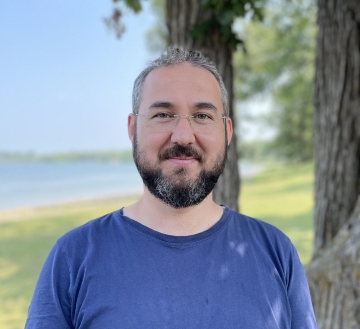
He earned his Bachelor's degree from Boğaziçi University in Political Science and International Relations and furthered his studies with a Master's in Big Data and Business Analytics at Istanbul Technical University (İTÜ). Throughout his career, he has been actively involved in numerous computational social science projects. Some standout projects include the TGSS (Turkish General Social Survey) funded by İSAR, "Ottolegal: The Making of Ottoman Law" funded by the EU, the Rıhle Network funded by TUBITAK, and "Fetva NLP: Comparing Ottoman Law using AI", also funded by TUBITAK. His technical interests span social theory, computational analysis, machine learning (ML), natural language processing (NLP), and network analysis. Outside of work, he enjoys chess, swimming, gaming, and spending time with his family.
Ayman Sajjad Akash

Originally from vibrant Bangladesh, Ayman Sajjad Akash is a dynamic doctoral graduate student at North Dakota State University. Ayman thrives on utilizing data-driven strategies to overcome practical challenges and has a lifelong commitment to engineering excellence. Ayman's strong foundation, which includes a Bachelor of Science in Industrial and Production Engineering from the Bangladesh Army University of Science and Technology, drives his pursuit of cutting-edge research. He is currently working toward a Ph.D. in Industrial and Manufacturing Engineering, seamlessly combining his experience in academia and the private sector.
Ayman's career progresses through a variety of positions, including those of Technical Account Manager at Hilti Bangladesh and Engineer in Construction Machineries & Material Handling at Energypac Power Generation Ltd. He began his career as a Management Trainee at Epyllion Group's Product Development Center.
Beyond academics and work, Ayman's heart beats for data analytics. His interests embrace everything from Predictive Analytics and Deep Learning to Supply Chain Optimization and Health Analytics. In the realm of collaboration, Ayman thrives. He believes in the power of teamwork as a catalyst for growth and innovation. His commitment to clear communication, accountability, and ethical practices shapes his collaborative ethos. Ayman reveals more of his complex self when he's not working. He is a passionate guitarist, loves aviation, enjoys experimenting in the kitchen, and longs for the open road for thrilling road trips.
M Mishkatur Rahman
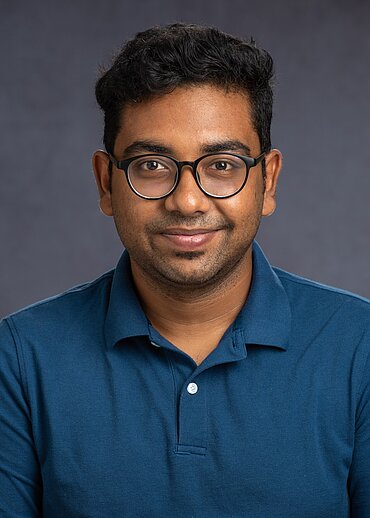
M Mishkatur Rahman is a dedicated Ph.D. student in Industrial Engineering at North Dakota State University, building upon a solid foundation earned through a Bachelor's degree in Industrial and Production Engineering from Khulna University of Engineering and Technology in 2019. With three years of invaluable experience as a production leader in industrialization at Decathlon, a prominent European sporting goods retailer, he has honed his skills in optimizing production processes. From 2022-2023, he was actively engaged in the NSF EPSCoR Track-2 research program, AI SUSTEIN, where his focus centers on defining the vulnerability of multilayer networks. His research passions lie at the intersection of operations research, machine learning, and data and statistical analytics, promising significant contributions to these dynamic fields as he continues his academic journey.
Faria Farzana

Born and raised in Bangladesh, my journey into the world of Industrial Engineering began with a bachelor’s degree from Ahsanullah University of Science and Technology in 2018. From there, I dove into the fast-paced industries of Bangladesh, starting at Fakir Apparels Ltd., a top player in the RMG sector, and later at Renata Limited, a leading pharmaceutical company.
Eager to expand my horizons, I embarked on a master’s in industrial engineering at Texas State University, where I had the privilege of working under Dr. Eduardo Perez in the IMOSS lab. My research was a thrilling dive into healthcare, utilizing agent-based simulations through AnyLogic and employing Gurobi for optimization challenges. I also ventured into machine learning, applying cutting-edge algorithms to pedestrian safety, where I analyzed intricate movement data to solve real-world problems.
My passion lies in merging machine learning, optimization, data analysis, statistical methods, and simulation to drive innovation. I’m always on the lookout for new ways to bridge the gap between theory and application in these areas.
Beyond academia, I’m a travel enthusiast with a love for discovering new places and cultures. I find joy in reading, helping others, and embracing spirituality. Whether I’m joining friends for a lively get-together, enjoying a road trip, or diving into the latest tech trends, I’m always seeking new adventures. At the core of it all, my family remains my greatest source of inspiration and support.
Affiliated Researchers
Yunus Emre Orhan
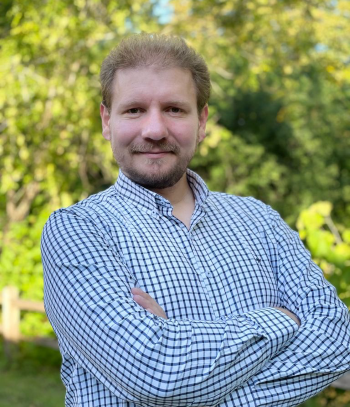
Yunus Emre Orhan is Research Project Manager for the Digital Society Project, and post-doctoral scholar at North Dakota State University. He comparatively studies democratic backsliding, with a substantive focus on polarization and social networks and a methodological focus on experiments. His dissertation (financed by the National Science Foundation Doctoral Dissertation Research Improvement Grant) develops and empirically assesses a theoretical framework to explain puzzling support for illiberal incumbents, highlighting the micro-level tradeoffs associated with punishing leaders. Much of his current research examines challenges that the internet, globalization, and gender inequality pose to democracy. He has published his work in diverse outlets, including The Washington Post and peer-reviewed Democratization. Orhan obtained his Ph.D. in Political Science at the University of Wisconsin – Milwaukee.
Colten Alme

A third-year undergraduate student, Colten Alme is pursuing a degree in mechanical and biomedical engineering at North Dakota State University. His current research is focused on leveraging the power of Artificial Intelligence to deepen our knowledge and enhance predictive capabilities in childhood diseases. By using traditional machine learning methods as well as graph neural networks to study human protein-protein interactions, his work aims to unravel the complexities of these intricate biological networks. By analyzing how these proteins interact with each other, this research has the potential to unlock novel biological insights and drive further discovery. In addition to his academic activities, Colten has a passion for physical wellness, various forms of entertainment, and spending time with his friends and family.
Zaidur Rahman
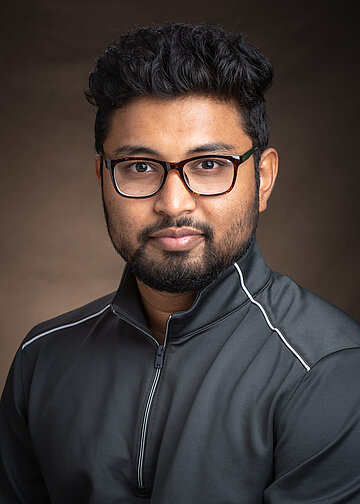
He holds a bachelor's degree in Industrial Engineering and Management from Khulna University of Engineering and Technology in Bangladesh, as well as a master's degree in Industrial and Manufacturing Engineering from North Dakota State University. Following his bachelor's, he gained two years of experience working at Gildan Bangladesh as a Supply Chain Coordinator and Analyst. Currently, he is pursuing a PhD in Industrial Engineering at the University of Arkansas.
His ongoing research project focuses on the development of protein function prediction models for bacterial protein sequences, utilizing a variety of machine learning methods.
His research interests encompass a broad spectrum of topics within the Data Analytics field, including predictive modeling, big data analytics, and statistical analysis. With a strong enthusiasm for AI, he remains captivated by the latest advancements in this domain.
Beyond his academic pursuits, he nurtures passions for movies, traveling, new technologies, and cars, which collectively provide him with a sense of equilibrium and delight.
Labiba Noshin Asha
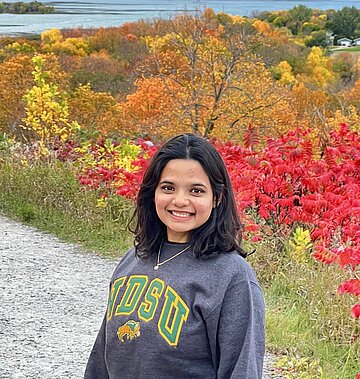
Labiba is a Ph.D. student in Industrial Engineering at the University of Arkansas. She obtained her M.Sc. from North Dakota State University (2023) and a B.Sc. (2018) from Khulna University of Engineering and Technology, Bangladesh. Labiba's research interest is on mathematical modeling, optimization, and heuristic approaches in supply chain activities. Currently she is working on the application of heuristic algorithms in space-filling design for computer experiments. During her leisure time, Labiba enjoys traveling, music, and quality time with family and friends.
Santiago Ospina Ferreira

He has experience working in supply chain decision support systems for multinational companies in latin america, logistic coordination, and optimization modeling. He has also performed research in the United States power grid flow networks making robustness analysis through probabilistic distribution simulation, data analytics, network analysis, and optimization for performance improvement.He is passionate about unlocking societal potential through economic growth, his research interests are in Industry 4.0 and the convergence of Artificial Intelligence and Operations Research. He sees these fields as powerful tools for boosting productivity and optimizing resource utilization. He wants to be a catalyst for progress.In his spare time, Santiago loves reading, playing the drums, and always exploring diverse topics.
Past Researchers
Daniela Andrea Ruiz Lopez
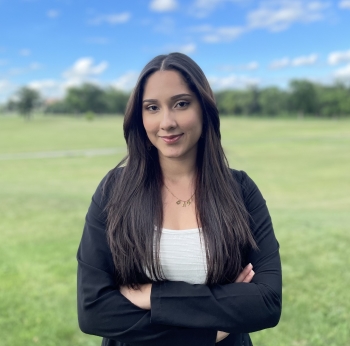
She is a biomedical engineer with a minor in German language and culture from the Universidad de los Andes, Colombia. Currently, she is in the final semester of her undergraduate degree in Industrial Engineering at the same institution. Her research interests are centered on the application of Machine Learning and Deep Learning models to both medicine and industry. She has an impressive portfolio, having worked on projects related to the segmentation of brain tumors in MRIs, classification of breast cancer metastases, human pose estimation, and the prediction of ADHD in children – a summer research project she undertook in 2022 at NDSU. Presently, she is a dedicated member of the Center for Research and Training in Artificial Intelligence (CINFONIA), where she focuses on the prediction of spatial gene expression in metastatic tissue. Beyond her academic and professional pursuits, she has a passion for dance, particularly in Latin rhythms like Salsa and Bachata.


